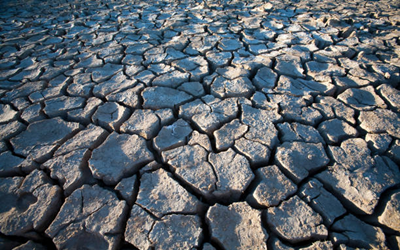HYDROGEOLOGY

₦40000
Hydrogeology is a specialized branch of geology that focuses on the distribution, movement, and quality of groundwater in the soil and rocks of the Earth's crust. This course typically covers various aspects of groundwater resources, including its occurrence, flow dynamics, and interactions with the environment. Below is a detailed description of hydrogeology as a course, including its objectives, key topics, methodologies, and practical applications. Course Overview Title: Hydrogeology Course Description: Hydrogeology is the study of the interactions between groundwater and geological formations. It encompasses the evaluation of aquifers, groundwater flow, water quality, and the impacts of human activities on groundwater systems. Students will learn how to assess groundwater resources, model groundwater flow, and develop strategies for sustainable management. Prerequisites: Basic knowledge of geology, hydrology, and environmental science. Objectives Understanding Groundwater Systems: To comprehend the occurrence, movement, and quality of groundwater in different geological settings. Evaluating Aquifer Properties: To assess aquifer characteristics such as permeability, porosity, and hydraulic conductivity. Modeling Groundwater Flow: To apply mathematical and computational models for predicting groundwater flow and contaminant transport. Water Quality Assessment: To analyze factors affecting groundwater quality and methods for monitoring and remediation. Sustainable Management: To develop strategies for the sustainable use and protection of groundwater resources. Key Topics Introduction to Hydrogeology Definition and scope of hydrogeology. Importance of groundwater in the hydrological cycle. Historical development of hydrogeology as a science. Aquifer Types and Properties Types of Aquifers: Unconfined, confined, and semi-confined aquifers. Physical Properties: Porosity, permeability, hydraulic conductivity, and specific yield. Aquifer Testing: Techniques such as pump tests and slug tests to evaluate aquifer properties. Groundwater Flow Hydraulic Principles: Darcy’s law and its applications in groundwater flow analysis. Flow Dynamics: Factors influencing groundwater flow, including hydraulic gradients and resistance. Groundwater Recharge and Discharge: Mechanisms of aquifer recharge and methods for estimating discharge rates. Groundwater Quality Contaminants: Types of contaminants (e.g., microbial, chemical) and their sources. Water Quality Parameters: pH, conductivity, turbidity, and concentrations of heavy metals and nutrients. Water Quality Assessment: Sampling methods, laboratory analysis, and data interpretation. Groundwater Modeling Numerical Modeling: Introduction to software tools such as MODFLOW for simulating groundwater flow. Analytical Solutions: Basic analytical techniques for simple groundwater flow problems. Model Calibration and Validation: Techniques for adjusting model parameters to improve accuracy. Hydrogeological Mapping Mapping Techniques: Use of GIS and remote sensing in hydrogeological studies. Data Integration: Combining geological, hydrological, and water quality data for comprehensive assessments. Groundwater Management and Policy Regulatory Frameworks: Overview of national and international groundwater policies. Sustainable Practices: Strategies for groundwater conservation and management. Impact of Human Activities: Understanding the effects of urbanization, agriculture, and industrial activities on groundwater. Methodologies Field Studies: Conducting field surveys to collect data on groundwater levels, quality, and geological formations. Laboratory Analysis: Performing water quality tests and sediment analysis in a laboratory setting. Data Analysis and Interpretation: Using statistical tools and software for data analysis and visualization. Model Development: Creating and refining models to simulate groundwater systems and predict responses to various scenarios. Practical Applications Water Resource Management: Developing sustainable groundwater management plans for communities and industries. Environmental Remediation: Assessing and remediating contaminated groundwater sites. Urban Planning: Informing land use planning and development to protect groundwater resources. Agricultural Practices: Managing irrigation and drainage to optimize groundwater use and minimize pollution. Assessment Methods Examinations: Written tests assessing theoretical understanding of hydrogeology concepts. Field Projects: Hands-on fieldwork to apply theoretical knowledge in real-world settings. Research Projects: Conducting independent research on specific hydrogeological issues and presenting findings. Class Participation: Engaging in discussions, case studies, and collaborative projects. Conclusion Hydrogeology as a course provides students with a comprehensive understanding of groundwater systems, preparing them for careers in environmental science, geology, civil engineering, and water resource management. The interdisciplinary nature of hydrogeology allows students to explore the interactions between groundwater and the environment, equipping them with the skills necessary to address pressing water resource challenges in an increasingly complex world.
Learn more
 0
0 